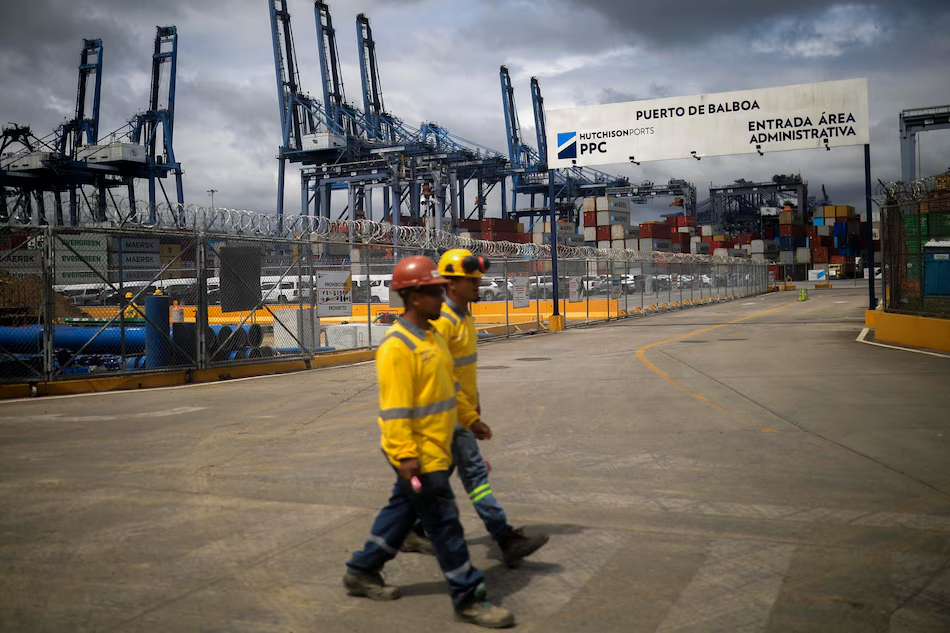Could Panama Be The Next Big Player In Crypto Adoption?

Over the past several years, cryptocurrencies have prompted intense policy and regulatory debate worldwide due to significant risks, as well as potential benefits. Rules better protect consumers and investors, counter financial crime, and support innovation to thrive. Authorities across the globe have been taking different approaches to regulating blockchain-based assets, some having embarked on comprehensive regulatory efforts.
Cryptocurrency activities such as token issuance, trading, and promotion are entirely legal in Panama. However, there’s no comprehensive regulatory framework tailored explicitly to cryptocurrency. Financial regulators like the Superintendency of Banks and the Superintendency of the Securities Market play a role in overseeing conventional finance, but don’t directly regulate cryptocurrency transactions or businesses. AML (Anti-Money Laundering) and KYC (Know Your Customer) laws apply to blockchain companies, such as exchanges and wallet providers, creating indirect oversight.
When trading cryptocurrency in Panama, it’s critical to use a licensed exchange to ensure your funds are safe and activities comply with local laws. These platforms offer secure environments for trading with speed. If you’re looking to diversify your portfolio, starting with the top cryptocurrency – Bitcoin or Ethereum – makes sense since it has weathered market crashes and technological shifts.
If Panama Finalizes Its Crypto Legislation, It Could Become A Major Player
Panama is a country of services, with key contributors including, but not limited to, banking, tourism, and logistics. Despite the challenges, there’s enormous potential for Panama to become a FinTech hub in Latin America, capitalizing on the acceleration of capital entering this industry. Several FinTech companies are emerging in the country, from digital payment solutions to cryptocurrency investment platforms. A precise, agile, and modern regulatory framework is crucial to stimulate the use of new technologies and the creation of new products while safeguarding customer trust and autonomy.
Bill No. 697 was introduced in 2021 to integrate cryptocurrency into the Panamanian economy. On April 28, 2022, Panama’s National Assembly voted to pass the bill, which regulated cryptocurrency use, digital asset issuance, and blockchain innovation. Individuals and companies can freely use crypto coins like Bitcoin, Ethereum, XRP, Litecoin, Stellar, Elrond, Algorand, IOTA, etc., as payment for any commercial transaction. Nevertheless, President Laurentino Cortizo partially vetoed the cryptocurrency bill due to concerns about AML regulations.
In 2025, Bill No. 247 was introduced by Alternate Deputy Gabriel Solis to strengthen and enforce the regulation of blockchain-based assets and position Panama as a regional hub. The modernized legal framework for cryptocurrency empowers global digital entrepreneurs and tech startups, enhancing Panama’s appeal as a jurisdiction that supports financial innovation in the interest of consumers. Here’s a look at some of the bill’s key provisions:
- Creating a National Council for Digital Assets to build a better digital economy, encourage blockchain use to accelerate key government functions, and guide the development of tokenized securities.
- Explicit alignment with the Financial Action Task Force’s 40 recommendations to combat money laundering and terrorist financing.
- Mandatory registration for Virtual Asset Service Providers, with requirements for KYC and AML compliance.
- Recognizing Bitcoin, Ethereum, and stablecoins like USDC as valid payment options for public services, such as taxes, fees, tickets, and permits, therefore allowing for the free flow of cryptocurrency in the entire government and economy.
Bill No. 247 remains under consideration in Panama’s National Assembly, which translates into the fact that it hasn’t yet been enacted into law.
Wealthy Digital Nomads, Crypto Entrepreneurs, And Remote Workers Are Drawn To Panama
Panama accommodates a well-maintained road network and a reliable public transportation system with a two-line metro in Panama City, not to mention that high-speed internet and cell phone coverage are comparable to those in major U.S. cities. For roughly $800 to $1,500 a month, it’s possible to live comfortably in small towns, villages, and farming communities.
Panama remains an international business center due to its territorial tax regime and free zones. Registering a company is an easy and quick process that can take as little as two weeks, and there are no physical presence requirements during/after incorporation. Since foreign income isn’t taxed in Panama, blockchain-based companies can expand and have more room to grow. A bustling community of developers, investors, and innovators hosts regular meetups, conferences, and workshops, crafting the ultimate experience for digital economy participants.
Panama has become a magnet for wealthy digital nomads and remote workers owing to its dedicated visa program – the Panama Digital Nomad Visa, referred to as the Short Stay Visa for Remote Workers – and lifestyle perks, such as strategic geographic location with direct flights across Americas and Europe and a growing network of coworking spaces in Panama City, Bouquete, and Bocas del Toro. By selecting Panama as their base, these people contribute to the economy by spending on accommodation, food, activities, and services.
Cryptocurrency Can Address The Issue Of The Unbanked Population In Panama
In Panama, most of the population is unbanked, meaning that residents don’t have access to basic financial services on account of high costs, documentation requirements, and limited bank branches outside urban centers. Cryptocurrency allows people to access financial products, such as loans, savings, or insurance, through a decentralized blockchain network. Moreover, it’s an alternative for individuals who send and receive remittances, as it allows money to be sent across borders without intermediaries.
Panama’s new bill aimed at regulating cryptocurrency allows individuals and businesses to enter into transactions that involve digital assets, while providing clear and foreseeable rules for blockchain firms, payment processors, and exchanges. A well-defined regulatory environment is an important stimulus for cryptocurrency adoption, particularly among those currently underserved by banks. It instills a sense of security, encouraging more people to enter the market.
One of the most critical barriers to cryptocurrency adoption is digital literacy. Individuals who live without any access to traditional financial services typically lack the necessary skills to navigate the cryptocurrency sphere effectively. By capitalizing on technological advancements, Panama can enhance learning experiences, improve educational outcomes, and shape cryptocurrency adoption.
Closing Statements
Panama won’t follow El Salvador’s path as its proposed laws are based on voluntary acceptance of cryptocurrency as a payment method. Its measured and business-friendly approach to cryptocurrency adoption could make it a more sustainable and influential hub for blockchain technology in Latin America and beyond.
________________________________________________________________________________________________________________
Advertisements placed in our Guest Contribution sections are in no way intended as endorsements of the advertised products, services, or related advertiser claims by NewsroomPanama.com, the website’s owners, affiliated societies, or the editors. Read more here.





